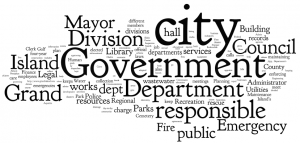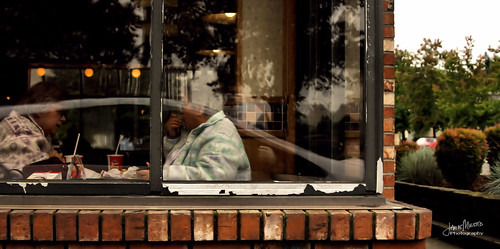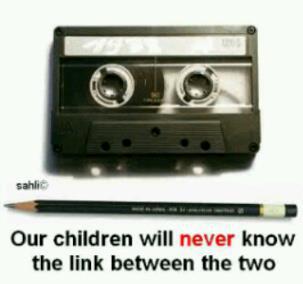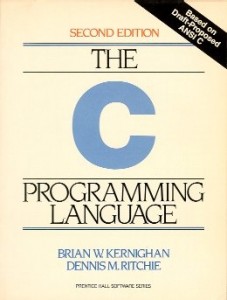This is my first submission for this week’s Project Flickr topic: “Round”
16
Oct 11
What does the government do for me?
Though we usually fail to notice it, government programs and policies improve our daily lives in innumerable ways.
Ask yourself this question: “What has government done for me lately?” If you are like most Americans, you will probably answer: “Not much.”
Many people feel like they pay a lot in taxes but don’t really get anything back from government. Surveys show that 52% of Americans believe that “government programs have not really helped me and my family.” But let’s see if that is really true. Let’s examine a typical day in the life of an average middle-class American and try to identify some of the ways that government improves that person’s life during that 24-hour period.
6:30 a.m. You are awakened by your clock radio. You know it is actually 6:30 because the National Institute of Standards and Technology keeps the official time. And you can listen to your favorite radio station only because the Federal Communications Commission brings organization and coherence to our vast telecommunications system. It ensures, for example, that radio stations do not overlap and that stations signals are not interfered with by the numerous other devices – cell phones, satellite television, wireless computers, etc. – whose signals crowd our nation’s airwaves.
16
Oct 11
And it’s one two three…what are we protesting for?
By James Milstid
Where are we going?
If nothing else, the so-called “Occupy _______” (fill in the blank) protests have made some good grist for my thought process mill. While I understand the frustration of so many folks about their economic dire straits, I also understand that it’s a two-way street. The original two-way economy street was pretty orderly and equitable for all, but it’s been re-paved with greed over many years.
And why are we in this hand-basket?
In one direction, we Americans have determined that the road to the dream is paved with credit cards and loans. We’ve lived beyond our means for so long that it’s become the norm to be in debt up to our ears. Not that we shouldn’t strive to have a better life. It’s just that we are impatient. And we let the banks lull us into a false sense of security because of that impatience.
In another direction, the banks, being businesses, have taken advantage of our impatience. Credit card interest rates and penalties are obscene. The lending institutions have us over a barrel. And they keep offering us more credit. Low interest, sure… until one misses a payment. A few days late and that 9% interest suddenly turns into 26% interest. It’s in the small print, but who ever reads that? Now many banks are even starting to charge for debit card usage.
When the feds lowered the interest rates, it cut into the lending institutions’ profits. When that happened, the banks started offering loans to high-risk clients to make up for profit losses. We are seeing the results of that now with housing foreclosures, defaulted loans, and bankruptcy.
Some true direction please…
If someone were to offer some true direction and some real answers to our economic problems, I have a feeling that a grassroots movement like this could actually make some headway. As it is now, it’s not even a movement. It’s just a lot of unhappy folks venting… some justified, some not.
I haven’t answered the questions in my own mind yet. Sure, I’d love to be out of debt and live more comfortably. But I got myself there and I need to take responsibility to get myself out or be willing to suffer the consequences. I’m not looking for a big bailout. I made my bed and I’ll sleep in it. And I want banks and corporations to do the same.
Our economy is in dire straits for a number of pretty complex reasons. I applaud folks for becoming active and voicing their frustrations, but I’ve yet to see any clear cut opinions about equitable ways to fix it all.
~James Milstid~
15
Oct 11
My new retirement plan!
Don’t you just love these emails?
Greetings.....
I am Jennifer Karla from the republic of Kenya, I need your honest assistance to move my consignment that worth US$4.2million with valuable commodities from here to your country for investment projects and am willing to offer you 15% share.Please, reply fast in my private email here jenny2011k@yahoo.fr if interested, for more details.God bless you
Jenny
15% of US$4.2 million? That’s US$630,000! Maybe I’ll hold out for 20%…
Hmmmm…
15
Oct 11
Publicly Drunk
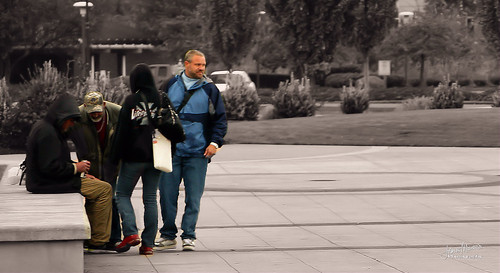
This group had just been escorted from the public library in Kent, WA and decided to loudly voice their complaints in the adjacent park. I was the only one there, but they didn’t seem to notice. This was as “up close” as I dared get!
Yes, that is a beer can in the seated man’s hand. They were pretty snockered… some of Kent, WA’s finest!
BTW, that’s the King County Courthouse behind them, teeming with police.
14
Oct 11
Ai Weiwei’s Snake Makes Huge Statement
Yesterday, Chinese artist Ai Weiwei was named the most powerful person in the art world, according to a poll compiled by ArtReview magazine. The Snake Bag is a perfect example of why China sees the Ai Weiwei as a threat. The artist/activist was detained by his home country for 81 days earlier this year.
Ai Weiwei created this 55-foot-long undulating snake using 360 children’s backpacks, which he found at the deadly 2008 Sichuan earthquake. Sadly, the backpacks belonged to children who died because of the poor building code, which was attributed to local corruption. As you can imagine, fashioning bags into a wicked symbol of Chinese lore certainly sends a loud statement to the entire world.
13
Oct 11
Thank You to Dennis Ritchie, Without Whom None of This Would Be Here
Paul Adams
This morning the news came over the internet: Dennis Ritchie has died.
Dr. Ritchie doesn’t have the mainstream adoring following of Steve Jobs, but he can take considerably more credit for the creation, and even the aesthetics, of the computer world we live in. It’s almost impossible to find a personal computing product or paradigm that doesn’t owe a direct debt to Ritchie.
At Bell Labs in the heady 1970s, Dennis Ritchie created the C programming language and co-developed the Unix operating system. Before C and Unix came along, the computer world was fragmented in a way that’s hard to imagine — there was no such thing as software written to run on a variety of computers. Everything was custom-coded for its particular platform, and every platform had wildly different standards for such fundamental things as “how big is a byte?”
11
Oct 11
Cloud-Powered Facial Recognition Is Terrifying
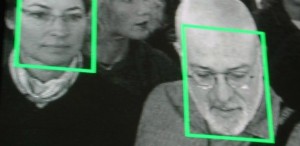 By harnessing the vast wealth of publicly available cloud-based data, researchers are taking facial recognition technology to unprecedented levels
By harnessing the vast wealth of publicly available cloud-based data, researchers are taking facial recognition technology to unprecedented levels
“I never forget a face,” goes the Marx Brothers one-liner, “but in your case, I’ll be glad to make an exception.”
Unlike Groucho Marx, unfortunately, the cloud never forgets. That’s the logic behind a new application developed by Carnegie Mellon University’s Heinz College that’s designed to take a photograph of a total stranger and, using the facial recognition software PittPatt, track down their real identity in a matter of minutes. Facial recognition isn’t that new — the rudimentary technology has been around since the late 1960s — but this system is faster, more efficient, and more thorough than any other system ever used. Why? Because it’s powered by the cloud.


